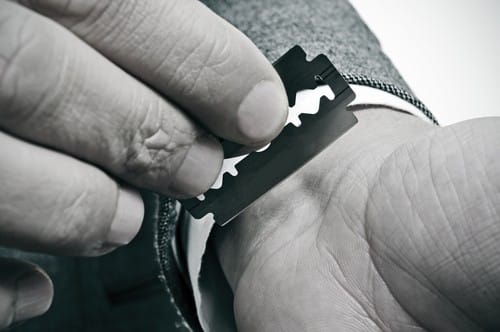Is your teen ready for the new school year? Emotional preparedness is just as important as academic preparedness, especially if your teen wants good grades. Mental health issues are on a steep rise in the scholastic post-pandemic landscape. Help your teen prep for the challenges ahead with this comprehensive mental health checklist for students.
For teens, the transition from high school to college represents a major milestone in life. That can be quite nerve-wracking, not in the least because of the academic requirements that many colleges demand. Whether your teen has a dream college in mind, has their eyes set on a trade school, or plans to enter the workforce after graduation, the last years of high school are marked by the anticipation of adulthood.
But with that transition comes a whole new slew of challenges and difficulties. Helping your teen build emotional resilience and develop a healthy level of independence will be important. Is your teen ready for what’s ahead?
Let’s go over a mental health checklist and find out.
The Mental Health Checklist for Students
Creating a mental health checklist for students is an excellent way to promote emotional well-being, and remind teens that it’s okay – important, even – to check in with themselves and others, talk about how they feel, and be cognizant of the different ways stress can negatively impact the mind and body.
Here are a few things to consider when organizing a a mental health checklist for students:
Developing Daily Habits for Mental Wellness
Improving your mental health starts with the day-to-day – from the way you get up in the morning to the way you end your day at night. The first step towards ensuring that your teen is ready for school is to help them get back into a healthy daily rhythm, including encouraging them to start their own morning routine, prioritize their sleep, get enough exercise, and more. Some important daily habits include:
- Is your teen prioritizing their sleep?
- Is your teen eating a healthy diet?
- Is your teen keeping up with their water intake?
- Is your teen getting enough exercise?
Stress Management and Coping Checklist
A daily routine can do a lot to help build resilience against stressors. But when the going gets tough, it’s important for your teen to know the right and wrong way to deal with their problems – and blow off some steam. How do their coping mechanisms look? Are they the type of person to channel their energy into destructive behaviors, or something positive? It’s important to consider this objectively. Your teen will probably have hobbies you don’t understand or enjoy quite as much. But are they hurting them, or are they a healthy outlet? Some questions for stress management and coping include:
- Is your teen identifying their stressors?
- Does your teen employ effective coping strategies?
- Does your teen ask for help when they need it?
- Is your teen managing their time effectively?
- Does your teen practice some sort of self-care?
A Social and Support Checklist
It’s important to look out for one another. Nurturing healthy relationships with others is not just a great way to build a long-term support network, but it can also be reflective of your teen’s mental health. A checklist for social health and mental health support might include:
- Is your teen hanging out with their friends?
- Does your teen set healthy boundaries with others?
- Does your teen ask for help with relationship problems?
Balancing School Goals and Mental Health
It’s important to prioritize effectively in life, but there is such a thing as working too much. Don’t encourage your teen to burnout – encourage, instead, a healthy balance between school work and fun. School-life balance questions and a checklist for managing academic goals might include questions such as:
- Is your teen setting realistic academic goals for themselves?
- Does your teen know how to manage their academic stress?
- Is your teen effectively utilizing academic support resources?
- Is your teen doing a good job of balancing their social life and academic responsibilities?
The Mental Health Access Checklist
Access to mental health resources is important. Knowing who to call or where to turn when your teen feels overwhelmed or needs to seek help on behalf of a friend is crucial. Encourage your teen to get informed about their options at school, and keep certain numbers and contacts on hand at home, as well. Important mental health resources that your teen should be aware of include:
- Campus Counseling Services
- Crisis Helplines and Hotlines
- Online Mental Health Communities
- Local Support Groups
- Helpful Self-Help Tools and Apps
- Mental Health Treatment Providers
Teens are at the perfect age to begin developing healthy habits to improve their mental well-being and develop their own coping skills for dealing with life’s greatest stressors. Parents and peers have no way of telling what the future holds, and it will be impossible to protect your loved one from life’s curveballs or help them prepare for every inevitable outcome. However, you can build your teen’s resilience against the worst life has to offer and give them the self-confidence and the skillset they need to succeed.
Just as it’s important to help your teen become self-sufficient, it’s also important to ensure that they’re nurturing their social circle and staying connected with their peers. Having a positive support group can make all the difference when motivation, self-care, and discipline are not enough.
Knowing how and where to look for professional mental health services is crucial. Mental health checklists and a robust schedule can improve your teen’s mental well-being. If you or your teen worry that they’re affected by a mental health issue, seek professional help. We at Visions Treatment Centers specialize in providing intensive care programs for teens with mental health problems, including substance use disorder, personality disorders, eating disorders, depression, anxiety, and much more. Call us today at (818) 889 3665 or contact us online to find out more.








